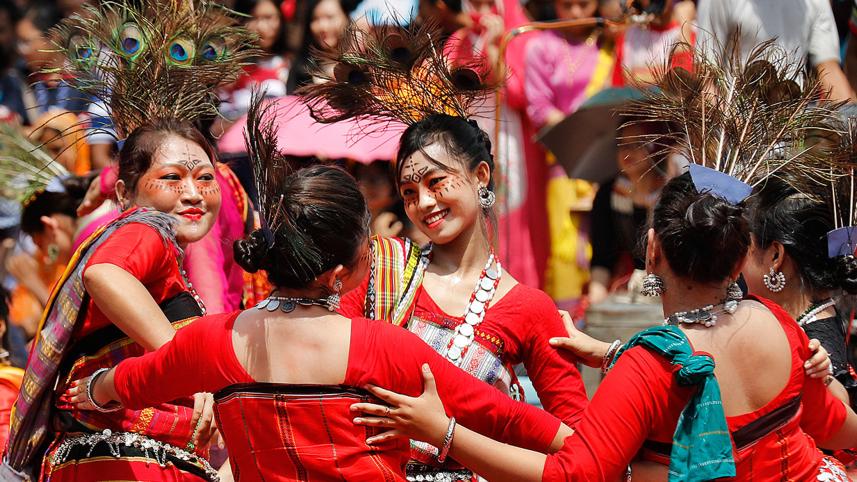Ensure inclusive development for indigenous populations

Today, on the International Day of the World's Indigenous Peoples, even as we celebrate the culture, heritage and diversity of the indigenous peoples of Bangladesh, we also express our concern at the various challenges that many minority communities within the country continue to face. While it is commendable that the Bangladesh government has included the development of these marginalised populations in the country's Eighth Five Year Plan, it is important to remember that inclusive development has to go beyond increases in per capita income only—it must involve legal, land, health, educational and cultural rights as well.
Although there has been progress since the signing of the historic CHT Accord and numerous sections have been implemented over the past two decades, according to human rights activists, the issue of a land commission to protect land rights is still a thorn in the side of the country's ethnic minorities. In a recent discussion on the inclusion of indigenous peoples in sustainable development, jointly organised by the Association for Land Reform and Development (ALRD) and Bangladesh Indigenous People Forum, activists spoke of how it is not only homesteads, gardens, trees, forestlands and lakes that are being taken over by land-grabbers—even crematoriums are at risk as well. Going forward, it is imperative that such instance of land-grabbing no longer go unpunished, and that the evicted are able to access justice from the state.
In March last year, The Daily Star also reported on a measles outbreak in the Chittagong Hill Tracts, revealing how the government's immunisation programme for infants and children had failed to reach some of the most remote areas of the country. While emergency assistance was given to the affected areas at the time, we hope that the government's long-term plans for the region will also involve increasing access to critical healthcare. Now more than ever, the Covid-19 pandemic has shone a renewed light on how important it is to invest in health systems alongside prioritising economic development. We also hope, once education is allowed to resume, that the authorities will continue to stress on the importance of education in the mother tongue of children from different ethnic communities.
The pandemic has had widespread negative repercussions across Bangladesh, but with vulnerable communities bearing a disproportionate burden of its impacts. As we roll out the nationwide vaccination programme and begin to plan for the post-pandemic recovery, we urge the government to ensure that vulnerable indigenous communities are not left behind. We must not only celebrate our cultural and ethnic diversity on such days, but ensure that minority communities are able to be part of the economic development of the nation while also having their rights and identities respected.



 For all latest news, follow The Daily Star's Google News channel.
For all latest news, follow The Daily Star's Google News channel.
Comments